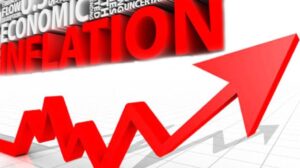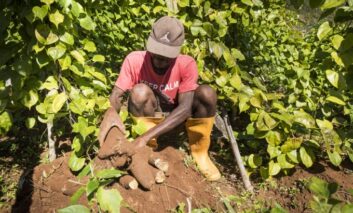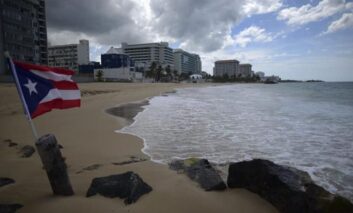In an interview on the program Rendez-vous économique of our colleague Kesner Pharel on Radio Metropole on September 5, 2021, the governor of the Bank of the Republic of Haiti (BRH) Jean-Baden Dubois confirmed that the recession of the Haitian economy will continue in 2022. Haiti will experience a third year of negative economic growth of significant magnitude, according to the BRH forecast. The growth rate of the gross domestic product (GDP) should oscillate between -2.2 and -2.3, according to estimates released by Governor Dubois. In 2018-2019, the growth rate of the Haitian economy was -1.7% against -3.3% the following year.
In France, the National Institute of Statistics and Economic Studies (INSEE) considers a country to be entering a recession when its gross domestic product (GDP) declines for at least two consecutive quarters. However, INSEE publishes the GDP every quarter. In the United States of America, a recession is defined as “a widespread significant decline in the overall economy that lasts more than a few months and affects GDP, income, industrial production, employment, and wholesale and retail trade. These U.S. statistics are published monthly or quarterly, unlike Haiti, which publishes some of them every year.
The term “recession” is used interchangeably with “economic contraction”. When the recession persists over a relatively long period of time, it is referred to as an economic depression, which refers to a significant and sustained drop in GDP. Three consecutive years of negative economic growth is a rare event in Haiti. We have to go back to the period of the military coup of September 30, 1991 to observe another sequence of three consecutive years of negative economic growth. Even the devastating earthquake of January 12, 2010 did not do so much. The economic growth rate was -5.5% in fiscal year 2009-2010, but jumped to 5.5% the following year.
How do you explain such an economic disaster? Well, everything worsened with the “peyi lòk” episodes of July 6-7, 2018, which not only marked the complete halt of economic activities, but also the aggravation of an already chaotic era of political governance. The political crisis was then exacerbated by a climate of unprecedented insecurity marked by the multiplication of armed gangs that fragmented the capital into lawless areas: Grand-Ravine, Martissant, Village-de-Dieu, Croix-des-Bouquets, etc. To make matters worse, the coronavirus pandemic will further damage the national economy in 2020, especially the tourism sector.
In its document entitled “National Accounts in 2020” published in April 2021, the Haitian Institute of Statistics and Informatics (IHSI) already indicated that the economic outlook for 2021 “is becoming increasingly darker because of the serious socio-political crisis that persists with all its corollaries, thus constituting bottlenecks to the development of economic activities.”




